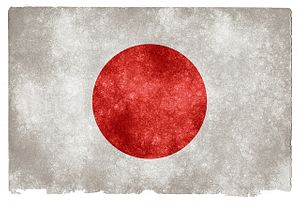On a visit to New Zealand this week Japan’s foreign minister, Taro Kono, expressed his concerns — alongside New Zealand Foreign Minister Winston Peters — about the high levels of debt being accumulated by some Pacific Island states. While being careful not to mention China, Kono’s comments were clearly aimed at Beijing’s lending practices in the region. The fear is that some Pacific states are accumulating unsustainable debt burdens to China, which could make them beholden to Chinese interests.
The 99-year lease that China now has on Sri Lanka’s Hambantota Port is seen as an example of what may be the consequences of these debts owed to Beijing. This is of obvious concern to Australia and New Zealand, which are in the process of adapting their Pacific strategies to accommodate increased regional engagement from China. But is also of significant interest to Japan, a country that remains a highly active actor in the region, and is wary of the shifts in the international order occurring due to China’s rise.
Every three years since 1997, Japan has hosted the Pacific Island Leaders Meeting (PALM), providing the Japanese leadership an opportunity to engage in high level talks and find common interests and areas of cooperation with Pacific Island leaders. The eighth iteration of this event (PALM8) was held in May of this year. At the meeting Japan and the Pacific Island states declared their commitment to a “free, open and sustainable maritime order,” with Pacific leaders welcoming Japanese cooperation in the region through its free and open Indo-Pacific (FOIP) strategy (a strategy initially developed by Tokyo, and subsequently appropriated by Washington). Both Japanese and U.S versions of FOIP are seen to be an attempt to counter China’s increasing maritime assertiveness.
Due to its unique status as a pacifist state, Japan has become acutely aware of the shifts in the regional order. Prime Minister Shinzo Abe especially has taken the role of a strategic organizer, attempting to move other states toward perspective and structures that may offset Japan’s capability deficits. This has created a highly engaged Japanese foreign policy, and with Japan being an island state with limited domestic resources, Tokyo is particularly attuned to maritime developments.
The PALM8 communiqué highlighted three areas where FOIP intersects with the interests of the Pacific Island states: the promotion and establishment of the rule of law and freedom of navigation; the pursuit of economic prosperity through strengthened connectivity; and a commitment to peace and stability. The communiqué also highlighted Japanese cooperation with Pacific Island states in the fields of maritime safety and disaster risk reduction.
The focus on maritime concerns also demonstrated Japan’s acknowledgement of the concept of the “Blue Pacific,” an attempt by Pacific Island states to redefine themselves as “large ocean states,” rather than “small island states.” Most Pacific Island states have large Exclusive Economic Zones (EEZs), that cover areas that dwarf their landmasses. Traditionally the ocean is vital to how these nations conceive themselves, yet they have limited capabilities to monitor and police these areas. This makes vast areas of the Pacific vulnerable to a number of transnational crimes, in particular illegal fishing ventures which not only rob Pacific Island countries of revenue, but are also not subject to sustainable practices. The PALM8 communiqué highlighted Japan’s commitment to strengthening the maritime law-enforcement capacities of these states.
Affirming a maritime order based on the rule of law, and of the sustainability of ocean resources, is vital to the interests of both Japan and the Pacific Island countries. And as countries prone to natural disasters there is also a mutual interest in strengthening countermeasures against climate change and enhancing disaster risk management. To this end Japan is funding a new Pacific Climate Change Center in Samoa, scheduled to be opened in August 2019. The center aims to provide training for around 1,400 people a year from across the Pacific in areas of climate resilience, adaptation and mitigation.
It is these mutual interests that Japan shares with the Pacific that is a major driver of the concerns about excessive debt burdens in the region that foreign minister Kono highlighted this week. Tonga, Vanuatu, Samoa and Papua New Guinea have all borrowed significant sums from China in recent years, and there remains disquiet about how China will respond if repayments cannot be made. Although Samoan Prime Minister Tuilaepa Sailele has stated that talk of debt relief is “embarrassing” and will lead to Pacific Island countries being deemed irresponsible actors, there is a deficit of trust toward Beijing’s actions in the region.
The authoritarian nature of the Beijing regime and its opaque operations cannot help but breed significant suspicion from states like Japan, Australia and New Zealand. Furthermore, China’s activities in the South China Sea has demonstrated a desire to revise maritime norms, and the precedent set by Sri Lanka’s Hambantota Port is concerning for states with significant maritime interests. As Tokyo is especially aware of shifts in the international order due to its limited military capabilities, it cannot help but view such developments — and the circumstances that lead to them — with an added unease. However, what direct responses Tokyo may have remains to be seen.

































